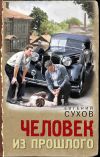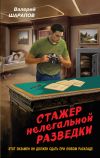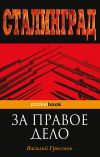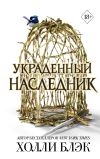Текст книги "The Great Boer War"

Автор книги: Arthur Conan Doyle
Жанр: Зарубежная публицистика, Публицистика
Возрастные ограничения: +12
сообщить о неприемлемом содержимом
Текущая страница: 40 (всего у книги 43 страниц)
Such was the action at Brakenlaagte, which cost the British sixty men killed and 170 wounded, together with two guns. Colonel Benson, Colonel Guinness, Captain Eyre Lloyd of the Guards, Major Murray and Captain Lindsay of the Scottish Horse, with seven other officers were among the dead, while sixteen officers were wounded. The net result of the action was that the British rear-guard had been annihilated, but that the main body and the convoy, which was the chief object of the attack, was saved. The Boer loss was considerable, being about one hundred and fifty. In spite of the Boer success nothing could suit the British better than hard fighting of the sort, since whatever the immediate result of it might be, it must necessarily cause a wastage among the enemy which could never be replaced. The gallantry of the Boer charge was only equalled by that of the resistance offered round the guns, and it is an action to which both sides can look back without shame or regret. It was feared that the captured guns would soon be used to break the blockhouse line, but nothing of the kind was attempted, and within a few weeks they were both recovered by British columns.
In order to make a consecutive and intelligible narrative, I will continue with an account of the operations in this south-eastern portion of the Transvaal from the action of Brakenlaagte down to the end of the year 1901. These were placed in the early part of November, under the supreme command of General Bruce Hamilton, and that energetic commander set in motion a number of small columns, which effected numerous captures. He was much helped in his work by the new lines of blockhouses, one of which extended from Standerton to Ermelo, while another connected Brugspruit with Greylingstad. The huge country was thus cut into manageable districts, and the fruits were soon seen by the large returns of prisoners which came from this part of the seat of war.
Upon December 3rd Bruce Hamilton, who had the valuable assistance of Wools-Sampson to direct his intelligence, struck swiftly out from Ermelo and fell upon a Boer laager in the early morning, capturing ninety-six prisoners. On the 10th he overwhelmed the Bethel commando by a similar march, killing seven and capturing 131. Williams and Wing commanded separate columns in this operation, and their energy may be judged from the fact that they covered fifty-one miles during the twenty-four hours. On the 12th Hamilton's columns were on the war-path once more, and another commando was wiped out. Sixteen killed and seventy prisoners were the fruits of this expedition. For the second time in a week the columns had done their fifty miles a day, and it was no surprise to hear from their commander that they were in need of a rest. Nearly four hundred prisoners had been taken from the most warlike portion of the Transvaal in ten days by one energetic commander, with a list of twenty-five casualties to ourselves. The thanks of the Secretary of War were specially sent to him for his brilliant work. From then until the end of the year 1901, numbers of smaller captures continued to be reported from the same region, where Plumer, Spens, Mackenzie, Rawlinson, and others were working. On the other hand there was one small setback which occurred to a body of two hundred Mounted Infantry under Major Bridgford, who had been detached from Spens's column to search some farmhouses at a place called Holland, to the south of Ermelo. The expedition set forth upon the night of December 19th, and next morning surrounded and examined the farms.
The British force became divided in doing this work, and were suddenly attacked by several hundred of Britz's commando, who came to close quarters through their khaki dress, which enabled them to pass as Plumer's vanguard. The brunt of the fight fell upon an outlying body of fifty men, nearly all of whom were killed, wounded or taken. A second body of fifty men were overpowered in the same way, after a creditable defence. Fifteen of the British were killed and thirty wounded, while Bridgford the commander was also taken. Spens came up shortly afterwards with the column, and the Boers were driven off. There seems every reason to think that upon this occasion the plans of the British had leaked out, and that a deliberate ambush had been laid for them round the farms, but in such operations these are chances against which it is not always possible to guard. Considering the number of the Boers, and the cleverness of their dispositions, the British were fortunate in being able to extricate their force without greater loss, a feat which was largely due to the leading of Lieutenant Sterling.
Leaving the Eastern Transvaal, the narrative must now return to several incidents of importance which had occurred at various points of the seat of war during the latter months of 1901.
On September 19th, two days after Gough's disaster, a misfortune occurred near Bloemfontein by which two guns and a hundred and forty men fell temporarily into the hands of the enemy. These guns, belonging to U battery, were moving south under an escort of Mounted Infantry, from that very Sanna's Post which had been so fatal to the same battery eighteen months before. When fifteen miles south of the Waterworks, at a place called Vlakfontein (another Vlakfontein from that of General Dixon's engagement), the small force was surrounded and captured by Ackermann's commando. The gunner officer, Lieutenant Barry, died beside his guns in the way that gunner officers have. Guns and men were taken, however, the latter to be released, and the former to be recovered a week or two later by the British columns. It is certainly a credit to the Boers that the spring campaign should have opened by four British guns falling into their hands, and it is impossible to withhold our admiration for those gallant farmers who, after two years of exhausting warfare, were still able to turn upon a formidable and victorious enemy, and to renovate their supplies at his expense.
Two days later, hard on the heels of Gough's mishap, of the Vlakfontein incident, and of the annihilation of the squadron of Lancers in the Cape, there was a serious affair at Elands Kloof, near Zastron, in the extreme south of the Orange River Colony. In this a detachment of the Highland Scouts raised by the public spirit of Lord Lovat was surprised at night and very severely handled by Kritzinger's commando. The loss of Colonel Murray, their commander, of the adjutant of the same name, and of forty-two out of eighty of the Scouts, shows how fell was the attack, which broke as sudden and as strong as a South African thunderstorm upon the unconscious camp. The Boers appear to have eluded the outposts and crept right among the sleeping troops, as they did in the case of the Victorians at Wilmansrust. Twelve gunners were also hit, and the only field gun taken. The retiring Boers were swiftly followed up by Thorneycroft's column, however, and the gun was retaken, together with twenty of Kritzinger's men. It must be confessed that there seems some irony in the fact that, within five days of the British ruling by which the Boers were no longer a military force, these non-belligerents had inflicted a loss of nearly six hundred men killed, wounded, or taken. Two small commandos, that of Koch in the Orange River Colony, and that of Carolina, had been captured by Williams and Benson. Combined they only numbered a hundred and nine men, but here, as always, they were men who could never be replaced.
Those who had followed the war with care, and had speculated upon the future, were prepared on hearing of Botha's movement upon Natal to learn that De la Rey had also made some energetic attack in the western quarter of the Transvaal. Those who had formed this expectation were not disappointed, for upon the last day of September the Boer chief struck fiercely at Kekewich's column in a vigorous night attack, which led to as stern an encounter as any in the campaign. This was the action at Moedwill, near Magato Nek, in the Magaliesberg.
When last mentioned De la Rey was in the Marico district, near Zeerust, where he fought two actions with Methuen in the early part of September. Thence he made his way to Rustenburg and into the Magaliesberg country, where he joined Kemp. The Boer force was followed up by two British columns under Kekewich and Fetherstonhaugh. The former commander had camped upon the night of Sunday, September 30th, at the farm of Moedwill, in a strong position within a triangle formed by the Selous River on the west, a donga on the east, and the Zeerust-Rustenburg road as a base. The apex of the triangle pointed north, with a ridge on the farther side of the river.
The men with Kekewich were for the most part the same as those who had fought in the Vlakfontein engagement – the Derbys, the 1st Scottish Horse, the Yeomanry, and the 28th R.F.A. Every precaution appears to have been taken by the leader, and his pickets were thrown out so far that ample warning was assured of an attack. The Boer onslaught came so suddenly and fiercely, however, in the early morning, that the posts upon the river bank were driven in or destroyed and the riflemen from the ridge on the farther side were able to sweep the camp with their fire. In numbers the two forces were not unequal, but the Boers had already obtained the tactical advantage, and were playing a game in which they are the schoolmasters of the world. Never has the British spirit flamed up more fiercely, and from the commander to the latest yeoman recruit there was not a man who flinched from a difficult and almost a desperate task. The Boers must at all hazard be driven from the position which enabled them to command the camp. No retreat was possible without such an abandonment of stores as would amount to a disaster. In the confusion and the uncertain light of early dawn there was no chance of a concerted movement, though Kekewich made such dispositions as were possible with admirable coolness and promptness. Squadrons and companies closed in upon the river bank with the one thought of coming to close quarters and driving the enemy from their commanding position. Already more than half the horses and a very large number of officers and men had gone down before the pelting bullets. Scottish Horse, Yeomanry, and Derbys pushed on, the young soldiers of the two former corps keeping pace with the veteran regiment. 'All the men behaved simply splendidly,' said a spectator, 'taking what little cover there was and advancing yard by yard. An order was given to try and saddle up a squadron, with the idea of getting round their flank. I had the saddle almost on one of my ponies when he was hit in two places. Two men trying to saddle alongside of me were both shot dead, and Lieutenant Wortley was shot through the knee. I ran back to where I had been firing from and found the Colonel slightly hit, the Adjutant wounded and dying, and men dead and wounded all round.' But the counter-attack soon began to make way. At first the advance was slow, but soon it quickened into a magnificent rush, the wounded Kekewich whooping on his men, and the guns coming into action as the enemy began to fall back before the fierce charge of the British riflemen. At six o'clock De la Rey's burghers had seen that their attempt was hopeless, and were in full retreat – a retreat which could not be harassed by the victors, whose cavalry had been converted by that hail of bullets into footmen. The repulse had been absolute and complete, for not a man or a cartridge had been taken from the British, but the price paid in killed and wounded was a heavy one. No fewer than 161 had been hit, including the gallant leader, whose hurt did not prevent him from resuming his duties within a few days. The heaviest losses fell upon the Scottish Horse, and upon the Derbys; but the Yeomanry also proved on this, as on some other occasions, how ungenerous were the criticisms to which they had been exposed. There are few actions in the war which appear to have been more creditable to the troops engaged.
Though repulsed at Moedwill, De la Rey, the grim, long-bearded fighting man, was by no means discouraged. From the earliest days of the campaign, when he first faced Methuen upon the road to Kimberley, he had shown that he was a most dangerous antagonist, tenacious, ingenious, and indomitable. With him were a body of irreconcilable burghers, who were the veterans of many engagements, and in Kemp he had an excellent fighting subordinate. His command extended over a wide stretch of populous country, and at any time he could bring considerable reinforcements to his aid, who would separate again to their farms and hiding-places when their venture was accomplished. For some weeks after the fight at Moedwill the Boer forces remained quiet in that district. Two British columns had left Zeerust on October 17th, under Methuen and Von Donop, in order to sweep the surrounding country, the one working in the direction of Elands River and the other in that of Rustenburg. They returned to Zeerust twelve days later, after a successful foray, which had been attended with much sniping and skirmishing, but only one action which is worthy of record.
This was fought on October 24th at a spot near Kleinfontein, upon the Great Marico River, which runs to the north-east of Zeerust. Von Donop's column was straggling through very broken and bush-covered country when it was furiously charged in the flank and rear by two separate bodies of burghers. Kemp, who commanded the flank attack, cut into the line of wagons and destroyed eight of them, killing many of the Kaffir drivers, before he could be driven off. De la Rey and Steenkamp, who rushed the rear-guard, had a more desperate contest. The Boer horsemen got among the two guns of the 4th R.F.A., and held temporary possession of them, but the small escort were veterans of the 'Fighting Fifth,' who lived up to the traditions of their famous north-country regiment. Of the gun crews of the section, amounting to about twenty-six men, the young officer, Hill, and sixteen men were hit. Of the escort of Northumberland Fusiliers hardly a man was left standing, and forty-one of the supporting Yeomanry were killed and wounded. It was for some little time a fierce and concentrated struggle at the shortest of ranges. The British horsemen came galloping to the rescue, however, and the attack was finally driven back into that broken country from which it had come. Forty dead Boers upon the ground, with their brave chieftain, Ouisterhuisen, amongst them, showed how manfully the attack had been driven home. The British losses were twenty-eight killed and fifty-six wounded. Somewhat mauled, and with eight missing wagons, the small column made its way back to Zeerust.
From this incident until the end of the year nothing of importance occurred in this part of the seat of war, save for a sharp and well-managed action at Beestekraal upon October 29th, in which seventy-nine Boers were surrounded and captured by Kekewich's horsemen. The process of attrition went very steadily forwards, and each of the British columns returned its constant tale of prisoners. The blockhouse system had now been extended to such an extent that the Magaliesberg was securely held, and a line had been pushed through from Klerksdorp and Fredericstad to Ventersdorp. One of Colonel Hickie's Yeomanry patrols was roughly handled near Brakspruit upon November 13th, but with this exception the points scored were all upon one side. Methuen and Kekewich came across early in November from Zeerust to Klerksdorp, and operated from the railway line. The end of the year saw them both in the Wolmaranstad district, where they were gathering up prisoners and clearing the country.
Of the events in the other parts of the Transvaal, during the last three months of the year 1901, there is not much to be said. In all parts the lines of blockhouses and of constabulary posts were neutralising the Boer mobility, and bringing them more and more within reach of the British. The only fighting forces left in the Transvaal were those under Botha in the south-east and those under De la Rey in the west. The others attempted nothing save to escape from their pursuers, and when overtaken they usually gave in without serious opposition. Among the larger hauls may be mentioned that of Dawkins in the Nylstrom district (seventy-six prisoners), Kekewich (seventy-eight), Colenbrander in the north (fifty-seven), Dawkins and Colenbrander (104), Colenbrander (sixty-two); but the great majority of the captures were in smaller bodies, gleaned from the caves, the kloofs, and the farmhouses.
Only two small actions during these months appear to call for any separate notice. The first was an attack made by Buys' commando, upon November 20th, on the Railway Pioneers when at work near Villiersdorp, in the extreme north-east of the Orange River Colony. This corps, consisting mainly of miners from Johannesburg, had done invaluable service during the war. On this occasion a working party of them was suddenly attacked, and most of them taken prisoners. Major Fisher, who commanded the pioneers, was killed, and three other officers with several men were wounded. Colonel Rimington's column appeared upon the scene, however, and drove off the Boers, who left their leader, Buys, a wounded prisoner in our hands.
The second action was a sharp attack delivered by Muller's Boers upon Colonel Park's column on the night of December 19th, at Elandspruit. The fight was sharp while it lasted, but it ended in the repulse of the assailants. The British casualties were six killed and twenty-four wounded. The Boers, who left eight dead behind them, suffered probably to about the same extent.
Already the most striking and pleasing feature in the Transvaal was the tranquillity of its central provinces, and the way in which the population was settling down to its old avocations. Pretoria had resumed its normal quiet life, while its larger and more energetic neighbour was rapidly recovering from its two years of paralysis. Every week more stamps were dropped in the mines, and from month to month a steady increase in the output showed that the great staple industry of the place would soon be as vigorous as ever. Most pleasing of all was the restoration of safety upon the railway lines, which, save for some precautions at night, had resumed their normal traffic. When the observer took his eyes from the dark clouds which shadowed every horizon, he could not but rejoice at the ever-widening central stretch of peaceful blue which told that the storm was nearing its end.
Having now dealt with the campaign in the Transvaal down to the end of 1901, it only remains to bring the chronicle of the events in the Orange River Colony down to the same date. Reference has already been made to two small British reverses which occurred in September, the loss of two guns to the south of the Waterworks near Bloemfontein, and the surprise of the camp of Lord Lovat's Scouts. There were some indications at this time that a movement had been planned through the passes of the Drakensberg by a small Free State force which should aid Louis Botha's invasion of Natal. The main movement was checked, however, and the demonstration in aid of it came to nothing.
The blockhouse system had been developed to a very complete extent in the Orange River Colony, and the small bands of Boers found it increasingly difficult to escape from the British columns who were for ever at their heels. The southern portion of the country had been cut off from the northern by a line which extended through Bloemfontein on the east to the Basuto frontier, and on the west to Jacobsdal. To the south of this line the Boer resistance had practically ceased, although several columns moved continually through it, and gleaned up the broken fragments of the commandos. The north-west had also settled down to a large extent, and during the last three months of 1901 no action of importance occurred in that region. Even in the turbulent north-east, which had always been the centre of resistance, there was little opposition to the British columns, which continued every week to send in their tale of prisoners. Of the column commanders, Williams, Damant, Du Moulin, Lowry Cole, and Wilson were the most successful. In their operations they were much aided by the South African Constabulary. One young officer of this force, Major Pack-Beresford, especially distinguished himself by his gallantry and ability. His premature death from enteric was a grave loss to the British army. Save for one skirmish of Colonel Wilson's early in October, and another of Byng's on November 14th, there can hardly be said to have been any actual fighting until the events late in December which I am about to describe.
In the meanwhile the peaceful organisation of the country was being pushed forward as rapidly as in the Transvaal, although here the problems presented were of a different order, and the population an exclusively Dutch one. The schools already showed a higher attendance than in the days before the war, while a continual stream of burghers presented themselves to take the oath of allegiance, and even to join the ranks against their own irreconcilable countrymen, whom they looked upon with justice as the real authors of their troubles.
Towards the end of November there were signs that the word had gone forth for a fresh concentration of the fighting Boers in their old haunts in the Heilbron district, and early in December it was known that the indefatigable De Wet was again in the field. He had remained quiet so long that there had been persistent rumours of his injury and even of his death, but he was soon to show that he was as alive as ever. President Steyn was ill of a most serious complaint, caused possibly by the mental and physical sufferings which he had undergone; but with an indomitable resolution which makes one forget and forgive the fatuous policy which brought him and his State to such a pass, he still appeared in his Cape cart at the laager of the faithful remnant of his commandos. To those who remembered how widespread was our conviction of the half-heartedness of the Free Staters at the outbreak of the war, it was indeed a revelation to see them after two years still making a stand against the forces which had crushed them.
It had been long evident that the present British tactics of scouring the country and capturing the isolated burghers must in time bring the war to a conclusion. From the Boer point of view the only hope, or at least the only glory, lay in reassembling once more in larger bodies and trying conclusions with some of the British columns. It was with this purpose that De Wet early in December assembled Wessels, Manie Botha, and others of his lieutenants, together with a force of about two thousand men, in the Heilbron district. Small as this force was, it was admirably mobile, and every man in it was a veteran, toughened and seasoned by two years of constant fighting. De Wet's first operations were directed against an isolated column of Colonel Wilson's, which was surrounded within twenty miles of Heilbron. Rimington, in response to a heliographic call for assistance, hurried with admirable promptitude to the scene of action, and joined hands with Wilson. De Wet's men were as numerous, however, as the two columns combined, and they harassed the return march into Heilbron. A determined attack was made on the convoy and on the rearguard, but it was beaten off. That night Rimington's camp was fired into by a large body of Boers, but he had cleverly moved his men away from the fires, so that no harm was done. The losses in these operations were small, but with troops which had not been trained in this method of fighting the situation would have been a serious one. For a fortnight or more after this the burghers contented themselves by skirmishing with British columns and avoiding a drive which Elliot's forces made against them. On December 18th they took the offensive, however, and within a week fought three actions, two of which ended in their favour.
News had come to British headquarters that Kaffir's Kop, to the north-west of Bethlehem, was a centre of Boer activity. Three columns were therefore turned in that direction, Elliot's, Barker's, and Dartnell's. Some desultory skirmishing ensued, which was only remarkable for the death of Haasbroek, a well-known Boer leader. As the columns separated again, unable to find an objective, De Wet suddenly showed one of them that their failure was not due to his absence. Dartnell had retraced his steps nearly as far as Eland's River Bridge, when the Boer leader sprang out of his lair in the Langberg and threw himself upon him. The burghers attempted to ride in, as they had successfully done at Brakenlaagte, but they were opposed by the steady old troopers of the two regiments of Imperial Horse, and by a General who was familiar with every Boer ruse. The horsemen never got nearer than 150 yards to the British line, and were beaten back by the steady fire which met them. Finding that he made no headway, and learning that Campbell's column was coming up from Bethlehem, De Wet withdrew his men after four hours' fighting. Fifteen were hit upon the British side, and the Boer loss seems to have been certainly as great or greater.
De Wet's general aim in his operations seems to have been to check the British blockhouse building. With his main force in the Langberg he could threaten the line which was now being erected between Bethlehem and Harrismith, a line against which his main commando was destined, only two months later, to beat itself in vain. Sixty miles to the north a second line was being run across country from Frankfort to Standerton, and had reached a place called Tafelkop. A covering party of East Lancashires and Yeomanry watched over the workers, but De Wet had left a portion of his force in that neighbourhood, and they harassed the blockhouse builders to such an extent that General Hamilton, who was in command, found it necessary to send in to Frankfort for support. The British columns there had just returned exhausted from a drive, but three bodies under Damant, Rimington, and Wilson were at once despatched to clear away the enemy.
The weather was so atrocious that the veld resembled an inland sea, with the kopjes as islands rising out of it. By this stage of the war the troops were hardened to all weathers, and they pushed swiftly on to the scene of action. As they approached the spot where the Boers had been reported, the line had been extended over many miles, with the result that it had become very attenuated and dangerously weak in the centre. At this point Colonel Damant and his small staff were alone with the two guns and the maxim, save for a handful of Imperial Yeomanry (91st), who acted as escort to the guns. Across the face of this small force there rode a body of men in khaki uniforms, keeping British formation, and actually firing bogus volleys from time to time in the direction of some distant Boers. Damant and his staff seem to have taken it for granted that these were Rimington's men, and the clever ruse succeeded to perfection. Nearer and nearer came the strangers, and suddenly throwing off all disguise, they made a dash for the guns. Four rounds of case failed to stop them, and in a few minutes they were over the kopje on which the guns stood and had ridden among the gunners, supported in their attack by a flank fire from a number of dismounted riflemen.
The instant that the danger was realised Damant, his staff, and the forty Yeomen who formed the escort dashed for the crest in the hope of anticipating the Boers. So rapid was the charge of the others that they had overwhelmed the gunners before the supports could reach the hill, and the latter found themselves under the deadly fire of the Boer rifles from above. Damant was hit in four places, all of his staff were wounded, and hardly a man of the small body of Yeomanry was left standing. Nothing could exceed their gallantry. Gaussen their captain fell at their head. On the ridge the men about the guns were nearly all killed or wounded. Of the gun detachment only two men remained, both of them hit, and Jeffcoat their dying captain bequeathed them fifty pounds each in a will drawn upon the spot. In half an hour the centre of the British line had been absolutely annihilated. Modern warfare is on the whole much less bloody than of old, but when one party has gained the tactical mastery it is a choice between speedy surrender and total destruction.
The wide-spread British wings had begun to understand that there was something amiss, and to ride in towards the centre. An officer on the far right peering through his glasses saw those tell-tale puffs at the very muzzles of the British guns, which showed that they were firing case at close quarters. He turned his squadron inwards and soon gathered up Scott's squadron of Damant's Horse, and both rode for the kopje. Rimington's men were appearing on the other side, and the Boers rode off. They were unable to remove the guns which they had taken, because all the horses had perished. 'I actually thought,' says one officer who saw them ride away, 'that I had made a mistake and been fighting our own men. They were dressed in our uniforms and some of them wore the tiger-skin, the badge of Damant's Horse, round their hats.' The same officer gives an account of the scene on the gun-kopje. 'The result when we got to the guns was this, gunners all killed except two (both wounded), pom-pom officers and men all killed, maxim all killed, 91st (the gun escort) one officer and one man not hit, all the rest killed or wounded; staff, every officer hit.' That is what it means to those who are caught in the vortex of the cyclone. The total loss was about seventy-five.
Правообладателям!
Это произведение, предположительно, находится в статусе 'public domain'. Если это не так и размещение материала нарушает чьи-либо права, то сообщите нам об этом.








































